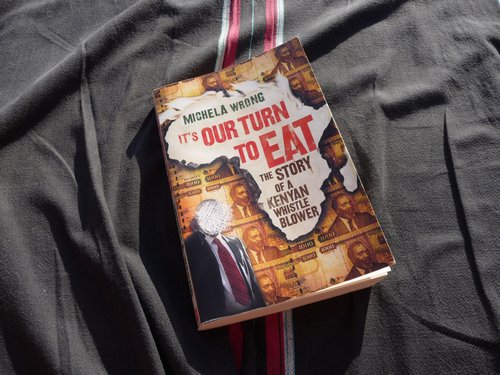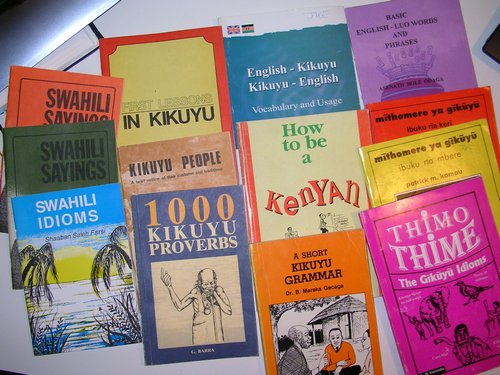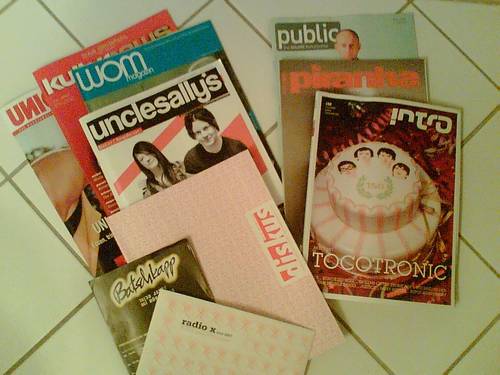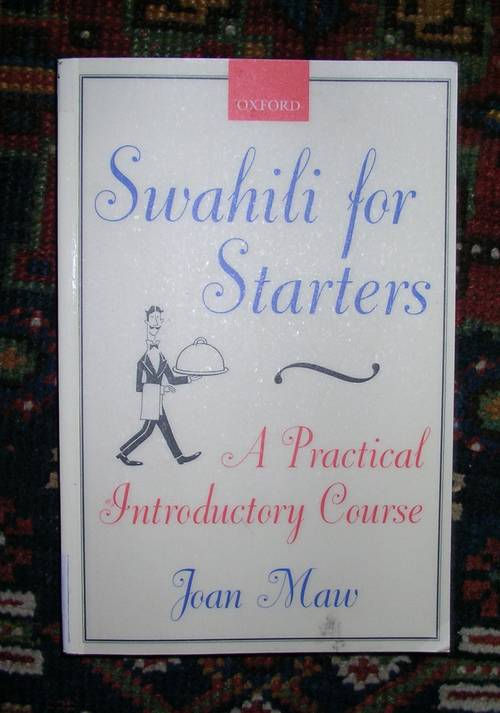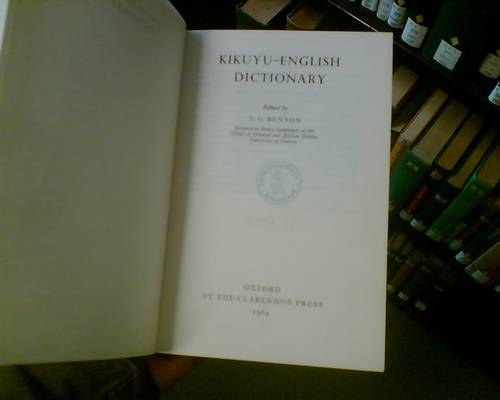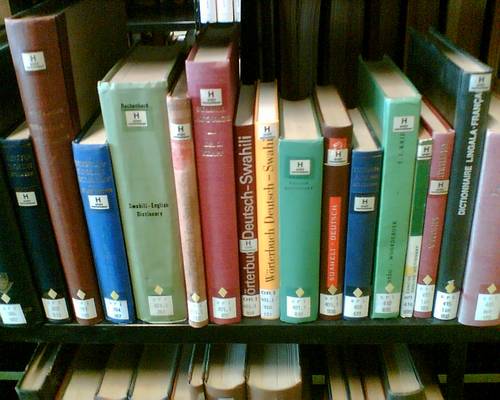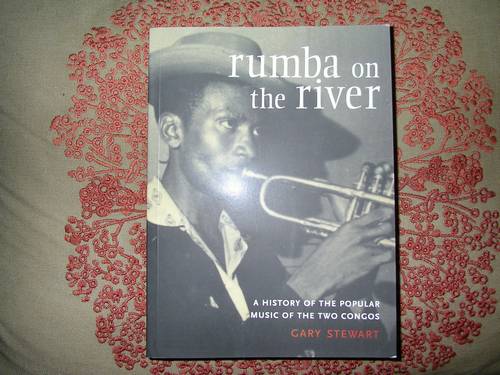Ein Artikel online über Demenz brachte mich auf Umwegen zu Tilman Jens, der ein sehr streitbares Buch über …. den Umgang mit seinem Vater, Walter Jens , geschrieben hat.
Überhaupt, dass ein 54jähriger Mann immer wieder als “Sohn von…” eingeleitet wird, wäre dann schon Grund genug, sich noch zu Lebzeiten zu differenzieren. Aber so?
Das Thema Alzheimer haben wir in der eigenen Familie von Anfang bis Ende durchlebt und nachdem der Spuk jetzt endlich vorbei ist, frage ich mich immer wieder: was bleibt?
Was bleibt – außer der Erinnerung, der Liebe, den Verbindungen – vom Intellekt, vom Schaffen zurück?
Menschen sind wie Bäume. Je älter sie werden, desto mehr Jahresringe bekommen sie und können besser verwertet werden. Spenden sie zu Lebzeiten Schatten und Schutz, können aus ihren Stämmen später lange und breite Bretter gesägt werden. Je mehr ein Baum erLebt, desto ergiebiger lässt sich davon profitieren.
Leider stimmt der Vegleich an dieser Stelle nicht mehr, denn Krankheiten wie Alzheimer oder Parkinson befallen Menschen wie ein Pilz, der die Substanz verändert und genau dort ansetzt, wo es am meisten schmerzt. Aus brauchbar wird unbrauchbar.
Eine ähnliche Frage stelle ich mir immer wieder bei Online Publikationen, die oft weniger breit und nachhaltig irgendwo im weiten Datennetz erscheinen und ob der Fülle an Informationen im Datennirwana untergehen.
Dieser Blogpost könnte auch ganz anders betitelt werden und ich könnte vielleicht von Anfang an hervorheben, dass ich mich viel lieber mit der Bedeutung von Onlineveröffentlichungen vs. Büchern beschäftigen würde.
Allein, ich vermag es in seiner Gänze nicht zu erfassen, gar zu überblicken, daher beschränke ich mich auf simple Fragen und stelle im Folgenden drei Bücher vor, die jetzt dank Amazon den Weg auf meinen Schreibtisch gefunden haben und sich elegant an der sonstigen Pflichtlektüre vorbeimogeln.
Die Pflichtlektüre besteht zur Zeit übrigens aus wissenschaftlichen Publikationen zum Thema Abwasserbehandlung in Entwicklungsländern, was zwar technisch überaus interessant ist, aber eben nicht faszinieren vermag – ganz im Gegensatz zu Gegenwartsliteratur über den afrikanischen Kontinent.
Eines aber noch vorweg: wenn wir in Zeiten einer WebCiety den Wechsel hin zu einer sich-ins-Netz-verlagernden-Gesellschaft bemerken, in der die Kommunikation miteinander an erster Stelle steht, stelle ich mir zwangläufig immer wieder die Frage: welchen Stellenwert haben Bücher (gedruckt, auf Papier) im 21. Jahrhundert?
Und: wer soll das alles lesen (?)…. in einer Zeit, in der die Aufmerksamkeitsspanne von Jugendlichen durch MTV und YouTube gerade einmal gefühlte 10 Minuten beträgt und wenn Informationen nicht mehr in kleinen Häppchen oder gar in Linkform präsentiert werden?
Wenn wir weiterhin davon ausgehen, dass sich moderne e-Book Reader (wie Amazons Kindle und kostengünstige Einsteigercomputer wie Netbooks als alternative e-Book reader) durchsetzen werden (oder gar Handyromane, wie in Japan schon sehr populär), wie werden diese Inhalte (und nur darum geht es eigentlich) mit dem neuen Konsumverhalten vernetzt? Werden unsere Kinder das Buch als solches wahrnehmen und konsumieren, oder eher als Teil des Wissens in einer virtuellen Bibliothek abspeichern? Und wie werden sie damit umgehen?
Alles Fragen, die mich immer wieder beschäftigen und die micht jetzt trotzdem nicht vom Kauf der folgenden Exemplare abgehalten haben:
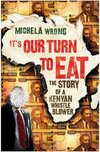
Michaela Wrong: “It’s our turn to eat – the story of a Kenyan whistle blower”
Über John Githongo und seinen Kampf gegen die kenianische Korruption. Aufgeschrieben von Michaela Wrong, die ihn seinerzeit in seinem selbstgewählten Exil in England aufnahm. Michaela Wrongs Buch über Mobutu wurde schon gierig verschlungen und liest sich gut, ähnliches erwarte ich daher auch von diesem Werk, das die (größtenteils schon bekannten) Verstrickungen kenianischer Politiker in Korruptionsskandale beschreibt .
Dieses Buch wird in Kenia zur Zeit wohl nur unterm Ladentisch verkauft und dürfte sich zu einem Beststeller entwickeln, denn – anders als der Verfall Kongos – handelt es sich bei Kenia um eines der reichsten Länder Afrikas. Freilich hat Kenia nicht die Bodenschätze, wie sie Botswana oder der Kongo (DRC) aufweisen können. Seinen Reichtum zieht es vielmehr aus der geopolitisch günstigen Lage am Indischen Ozean (Hafen, Tourismus), den vielen Exilkenianern im Ausland (die für einen informellen Geldfluss sorgen) und vielleicht auch noch aus der Agrarwirtschaft (Kaffee, Tee, Blumen). Und während viele Ministerien immer noch vom Geldsegen der EU abhängen, die gelegentlich ein paar Pickups als Projektautos finanzieren, verfügen viele kenianische Politiker über ein sehr gutes Einkommen, das im sehr krassen Verhältnis zu ihren eigenen Leistungen, aber vor allem dem Durchschnittseinkommen im Lande steht.
Korruption als solche mag für viele als Ausgleichssystem für die vielen Ungerechtigkeiten in der Volkswirtschaft verstanden werden. Tatsächlich jedoch ist sie wie ein Pilz, der ein gesundes System zerstört und unbrauchbar werden lässt.
Die wirkliche Kernaussage dieses Buches scheint aber zu sein, dass das korrupte System vom scheinbar eigenen Mann aufgedeckt worden ist, der als Vertreter einer neuen Generation mit anderen Werten und Idealen aufgewachsen ist. Was wir hier sehen, ist der ungerechte Kampf zwischen den alten Männern eines über die Jahre gewachsenen profitablen Systems und einzelnen Vertretern wie John Githongo, die über einen viel moderneren Erfahrungshorizont verfügen.
Wäre ich ein bißchen Deutscher und älter – vielleicht so wie Tilman Jens – würde ich es vielleicht mit den Identifikationsproblemenen der 1968/1978er Generation im Nachkriegsdeutschland vergleichen. Interessant dabei: die wirklichen Auswirkungen erkennen wir oft erst an der folgenden Generation.
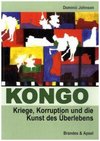
Dominic Johnson “Kongo: Kriege, Korruption und die Kunst des Überlebens”
Dominic Johnson ist mir als Afrika Korrespondent der taz bekannt, dessen Artikel seinerzeit mit einer der Gründe für mein taz-Abo waren.
Ich war noch nie im Kongo, jedoch steht die Region auf meiner Reiseliste ganz weit oben. Aufmerksame Leser meines Blogs wissen sicherlich, dass ich hier schon den einen oder anderen Artikel mit Inhalten zum Kongo (als Region, nicht nur DRC) veröffentlich habe. Kurzum: für mich ein überaus vielversprechendes Buch, in dem ich vielleicht auch meine Vermutung wiederfinden werde, dass sich die “Demokratische Republik Kongo” in den nächsten Jahren in Einzelstaaten aufteilen wird. Der Kongo ist die für mich zur Zeit spannendste Region Afrikas.
“Die Kunst des Überlebens” – ja. Trefflicher kann man es wohl nicht beschreiben.
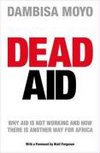
Dambisa Moyo: “Dead Aid – Destroying the biggest global myth of our time”
Ein Buch im Stil von Prof George Ayitteys “Africa Unchained – The Blueprint for Africa’s Future”, das die “Ablasszahlungen” des Westens an Afrika beschreibt und einen neuen Weg aufzeigen möchte, der wirkliche Entwicklung in Afrika ermöglichen soll.
Da ich auch in dieser aufgeklärten Zeit immer wieder auf Zeitgenossen stoße, die ein komplett falsches Bild vom afrikanischen Kontinent und dem riesigen Potential haben, ist es umso wichtiger, Vertreter neuer Theorien zu entdecken, die – wissenschaftlich fundiert – eine eigene Lösung aus der Misere beschreiben und idealerweise auch noch über die nötige berufliche Erfahrung verfügen, die ihre Glaubwürdigkeit untermauert.
In Dead Aid, Dambisa Moyo describes the state of postwar development policy in Africa today and unflinchingly confronts one of the greatest myths of our time: that billions of dollars in aid sent from wealthy countries to developing African nations has helped to reduce poverty and increase growth. (Quelle)
Dambisa wurde letztens auch von der BBC im HardTalk interviewt und ich habe sie vorhin via Twitter auf das Africa Gathering Ende April in London hingewiesen. Mal schauen was draus wird…Sie kann nicht, ist auf Lesereise in den USA.
The silver lining der hier vorgestellten Werke ist für mich ganz klar die Erkenntnis, dass es Veränderungen in Afrika nur durch eine neue Generation geben kann, die – aufgewachsen mit traditionellen Verhaltensmustern und typischen US-amerikanischen SitComs wie dem Fresh Prince of BelAir – ihren eigenen Weg finden muss.
UPDATE: Fünf Wochen nach VÖ dieses Beitrags ist in der FAZ ein Interview zu Dambisa Moyos Buch erschienen. Und jetzt hat sie sogar wohl noch im Vortrag bei der Weltbank überzeugt. Wer sich auch nur ein bißchen mit Afrika beschäftigt, sollte dieses Buch unbedingt lesen – kann es wärmstens empfehlen. Weniger um einen möglichen Lösungsweg aufgezeigt zu bekommen, als vielmehr die moderne Einstellung des neuen Afrikas zu verstehen.

